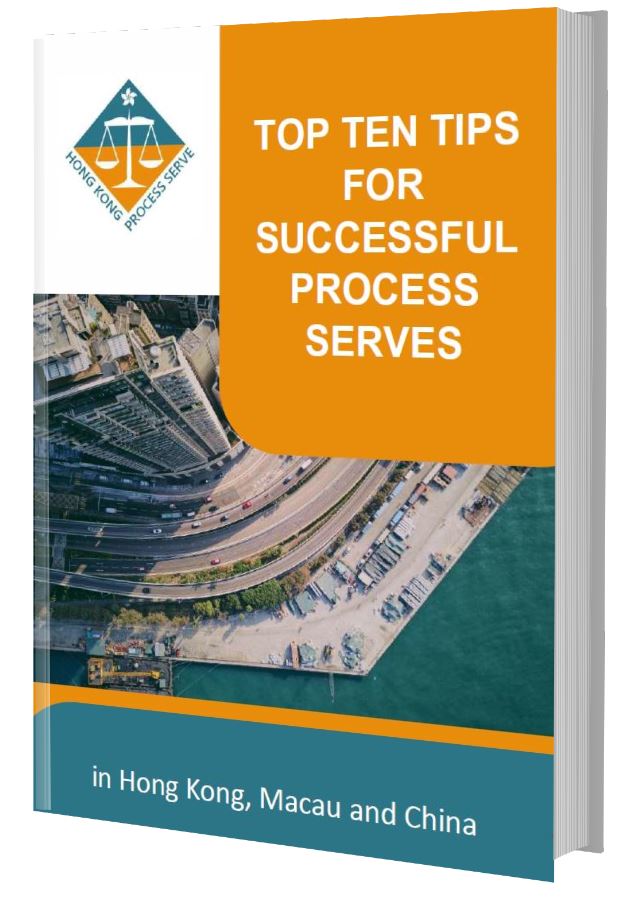Process Serving vs. Letters Rogatory: Which One is Right for You?
Introduction – Understanding Letters Rogatory
When serving legal documents to parties located in another country, two methods are commonly used: Letters Rogatory and process serving. Each has its own pros and cons. It’s crucial to understand the differences between them to determine the best option for your situation. This article explains the purpose and benefits of process serves. It also discusses the role of letters rogatory in international process serves and offers guidance on which to choose.
Process Serving: Hague Convention
Process serving is the act of delivering legal documents to a party involved in legal proceedings. It includes summons, complaints, subpoenas, divorce papers and other legal notices. When it comes to international legal proceedings, process servers are often used. This is especially so when the party being served is located in a country that is a signatory to the Hague Service Convention.
Broadly speaking, there are two types of Hague Convention serves. Firstly, those served through the Central Authorities of the sending and receiving states and, secondly, those served privately. These are frequently referred to as formal and informal services.
It should be noted that some countries, such as China, do not permit private serves.
Administrative and other delays in the recipient country can cause long delays to the delivery of documents served through Central Authorities. Also, there is a requirement to serve all documents in the recipient country’s official language. Finally, if the recipient’s address in the receiving country is unknown, the Central Authorities will not accept the documents.
On the other hand, privately served legal documents are usually served within 24–48 hours of receipt. Even better, the cost is significantly less than going through a Central Authority.
Benefits of Process Serving
One of the key benefits of an informal process serve is its speed. Unlike Letters Rogatory or formal serves, which can take several months to complete, process serves are usually completed in days. This is especially important when time is of the essence in legal proceedings.
Additionally, many process serve companies will conduct “locates” to find the person to be served. Another advantage, depending on the company you appoint, is the level of detail provided in the service report. This can make a difference in the success or failure of the follow-up legal proceedings.
Veriton Asia, a Hong Kong-based process serving company, provides high-quality service reports that are often submitted to the courts.
Understanding Letters Rogatory
For over two centuries, in the absence of treaties or executive agreements, the legal system has used Letters Rogatory to obtain assistance abroad. They are also known as “letters of request”. The term “rogatory” comes from the Latin word “rogare,” which means “to ask,” and “letters” refers to the written communication between two judicial authorities.
Rogatory letters are commonly used for:
- Serving of a summons, subpoena, or other legal notice (process serves)
- Taking of evidence
- Executing a civil judgment
In practical terms, Letters Rogatory ask a foreign court or judicial authority to perform certain actions, such as serving legal documents. In effect, a request from a court in one country to the judiciary of another country: To perform a specified act that would violate the foreign country’s sovereignty if done without its approval.
Coordination between judicial authorities of different countries and strict compliance with procedures and protocols will best be achieved through diplomatic channels. This can take months to complete. In some cases, they may even be denied or ignored by the receiving country.
Request letters are typically used when a party to legal proceedings is located in a country that is not a signatory to the Hague Service Convention. A good example is Taiwan.
In practice, using Letters Rogatory can be a lengthy, complex and expensive process.
Benefits of Letters Rogatory
Although they have drawbacks, Letters Rogatory can serve as a useful tool in certain situations. For example, they may be necessary when the country where the party is located has different requirements for the service of legal documents. In these cases, request letters can help ensure that the legal documents are served in compliance with local laws and regulations.
Request letters can also be useful when the party being served is particularly difficult to locate or when there are language barriers. In such cases, the assistance of local authorities may be necessary to ensure that the legal documents are properly served.
Finally, enforcement is the pivot point for deciding service via process serve or through Letters Rogatory. The first step of enforcement is recognition, and the first step of recognition is: was the process serve conducted properly? Because Letters Rogatory service can only be successful with the help of a country’s judiciary system, a judge hearing an enforcement case can rule that Letters Rogatory service occurred outside of the recognising country’s laws.
Regardless, once obtained, Letters Rogatory do provide a stronger chance of enforcement of whatever order is sought.
Conclusion: Whats Best for Me?
Where significant sums are being contested, it is probably wiser to go with Letters Rogatory. Request letters provide a better chance of enforcement in the courts. However, where the matter may, for instance, be family-related, Process Serve is probably a better choice.
In conclusion, both process serving and letters rogatory have their advantages and disadvantages. When choosing between the two, it’s important to consider the specific circumstances of your legal case. And please do consult with a qualified legal professional.
Veriton Asia offers expert process-serving services that can save time and money for lawyers and their clients.
Contact us today to learn more about our services and how we can assist you in your legal proceedings.








